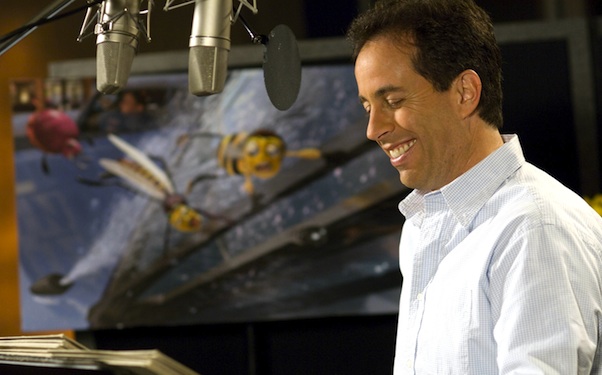
He proposed an episode in which Jerry goes through similar angst after a bad haircut.ĭavid and Seinfeld liked the idea. “It was like breaking up with your lover,” he says. Andy Robin, 24, a former Saturday Night Live writer who joined the Seinfeld staff this season, remembered the anxiety he felt about switching barbers, from the old man who had cut his hair for years to a younger barber in the same shop. The Barber, like most Seinfeld episodes, expanded from a writer’s real-life experience.

Says David: “I like something tiny that just expands.”
#JERRY SEINFELD MASTER OF MY DOMAIN TV#
A Seinfeld premise is different from that of most other TV comedies instead of a generic sitcom “problem” (Murphy’s mother comes to visit Roseanne hates Darlene’s new boyfriend), Seinfeld typically starts with a small, recognizable life moment that causes outsize anguish. THE SEED: “The hardest part of this show is coming up with the ideas,” says David. Early last month, they gave TIME an inside glimpse of how they bring a Seinfeld episode to fruition. It is, moreover, the product of two distinct but oddly congruent comic personalities: David, 46, a dour ex-stand-up comic and writer (he appeared in ABC’s failed late-night show Fridays and spent one season writing for Saturday Night Live, where only one of his sketches ever aired), and Seinfeld, 39, a star who is just as active behind the scenes. In reality, the show is more densely textured, elaborately plotted and psychologically astute than any other comedy on TV. It’s that rarity - intelligent comedy that is funny enough for everybody.Īccording to the popular wisdom, Seinfeld is a show about “nothing.” Episodes are spun out of small, everyday trials and tribulations - looking for a parking spot, wearing a funny-looking shirt, trying not to masturbate (last season’s Emmy-winning episode The Contest, in which the characters competed to be “master of your domain”). Against all odds, this hip, insider sitcom about a comedian (Seinfeld playing Seinfeld) and his three Manhattan friends has expanded its appeal beyond a core audience of yuppie tastemakers. This fall, without Cheers’ help, it’s in the Top 5. Last winter, moved to a Thursday-night time slot following Cheers, the show vaulted into the Nielsen Top 10. However, if you don’t like Seinfeld, I’d highly recommend this book.Now in its fifth season on NBC, Seinfeld is in its glory days. If you like Seinfeld, I’d highly recommend this book. Peterman went into business together, I am not even kidding you. While I feel like I do better understand why it is funny now (and feel like the master of my domain), the thing I enjoy most about watching Seinfeld now is remembering back to the anecdotes told in the book about specific scenes and instances. From learning about how Larry David and Jerry Seinfeld met and developed the show, to the time Larry David only owned a Porsche for a week before returning it, to the world’s reaction to the final episode, this book was fascinating. When I saw this book, I thought, “Why not? Maybe I can finally understand the appeal of Seinfeld?” That is exactly what happened. While I’ve never been a fan of Seinfeld, I am a fan of television and film, and am very interested in how those things get made. If you ask any millennial worth their dad hat though, they will tell you that Seinfeld is the apex of comedic perfection. I watched a few times, but I never thought it was all that funny, at least not worth more than a chuckle.



I grew up during a time when Seinfeld was airing for the first time on NBC, not yet in syndication. Just for the visual, I was wearing a light blue oxford shirt and holding a picture of Superman while I wrote this.) What’s the deal with books about TV shows? If you want a book, read a book! If you want a TV show, watch a TV show! Who are these people writing these books?!? (That was my Jerry Seinfeld impression. Seinfeldia: How a Show About Nothing Changed Everything


 0 kommentar(er)
0 kommentar(er)
